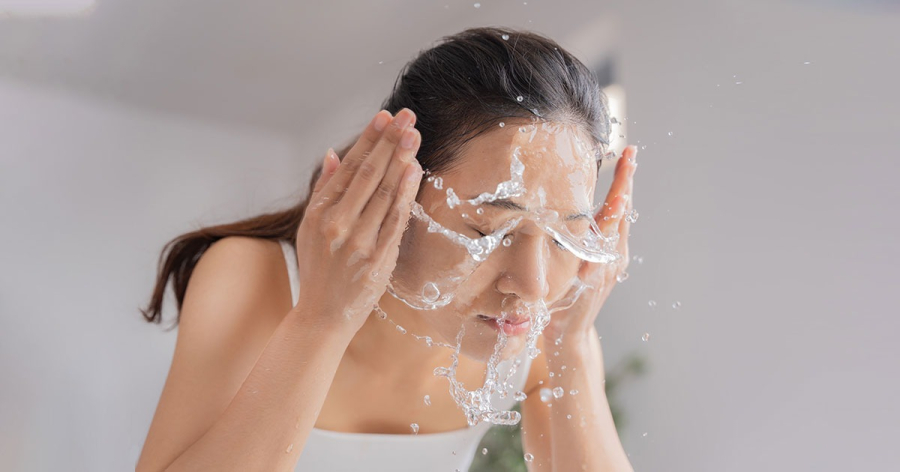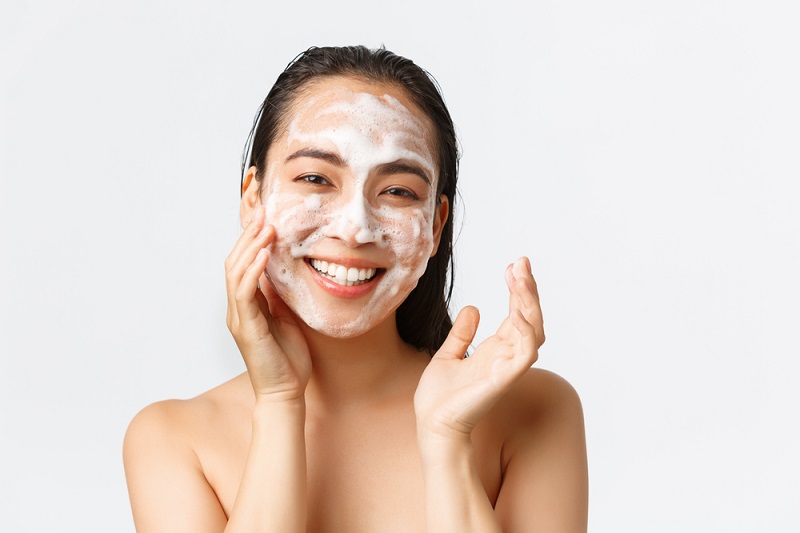Don’t Skimp on Foaming Your Cleanser with Water
A rich lather helps penetrate deep into pores, effectively removing dirt and excess oil. If you don’t create enough foam, your cleanser may not distribute evenly on your skin.
Not Washing Your Hands Before Cleansing Your Face
Washing your hands before cleansing your face is crucial to removing bacteria and grime. If you don’t wash your hands first, bacteria will transfer to your skin.

Not washing your hands beforehand can lead to bacterial transfer onto your skin.
Choosing a Cleanser That Doesn’t Suit Your Skin Type
Using a cleanser that’s not meant for your skin type can lead to dryness, irritation, or ineffective cleansing. Opt for a cleanser specifically formulated for dry, oily, sensitive, or acne-prone skin to meet your skin’s unique needs.
Rubbing Your Skin Too Harshly
Aggressive rubbing can cause skin damage and irritation. Instead, gently massage your cleanser onto your skin in gentle, circular motions to ensure effective cleansing without negative side effects.
Using Water That’s Too Hot or Too Cold
Extremely hot water can strip your skin of moisture and cause irritation, while very cold water can constrict pores and damage skin. Stick to lukewarm water for a gentle and comfortable cleansing experience.

Lukewarm water is ideal for a gentle and comfortable cleanse.
Rinsing Your Face Too Quickly or For Too Long
A quick rinse may not adequately remove all the cleanser, while rinsing for too long can strip away your skin’s natural oils and protective barrier. Aim for at least one minute of gentle cleansing, especially during your evening skincare routine.
Cleansing prepares your skin to absorb nutrients from your skincare products. When your skin is thoroughly cleansed, moisturizers and serums can penetrate deeper and work more effectively.
Using a Cleanser with Physical Exfoliants
Daily use of physical exfoliants can irritate and damage your skin. These exfoliating particles can cause micro-tears and strip away your skin’s natural protective barrier. Limit the use of physical exfoliants to 1-2 times per week.
These are common mistakes many people make when cleansing their faces. If you’re experiencing skin issues or are unsure about the right cleanser for your skin type, consult a dermatologist for personalized advice.


































